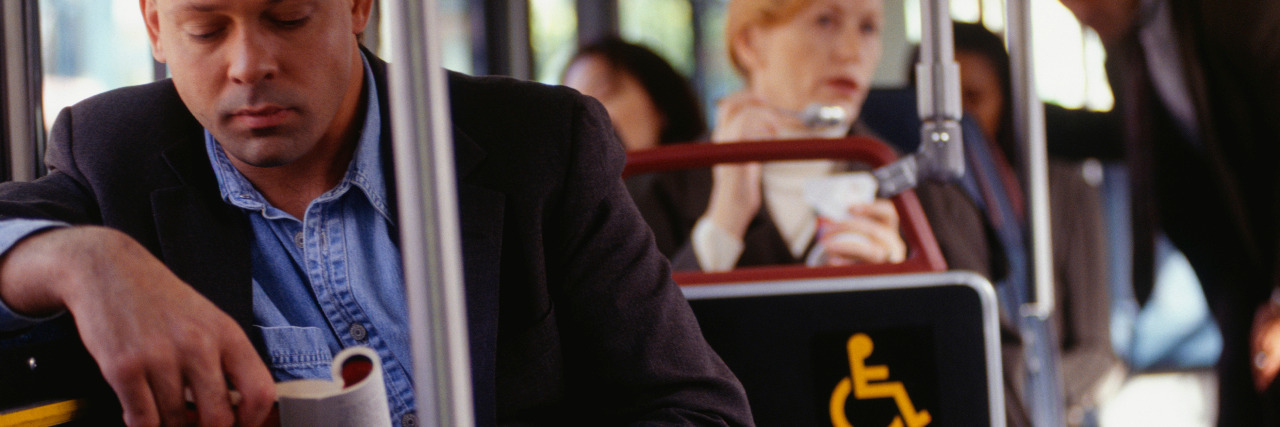My commute started out just as usual last Friday. I waited for the 4:30 bus after a long day of AP and Honors classes, and was completely exhausted. When the bus arrived, I boarded and sat in one of the disability reserved spots, as I am legally allowed to do as a woman with cerebral palsy. The bus left, and it was just an average ride, with passengers shooting me indiscreet judgmental stares and whispering. I understand why they do this, of course; I am a young woman who appears able-bodied when sitting. They probably didn’t notice my limp, and most likely assumed I was selfish. I’ve learned to ignore it, for the most part. It’s annoying, but as long they aren’t accosting me, I’ve learned to accept it.
These scowls and ignorant comments are usually the end of my challenges on the bus. But not on Friday. An older woman boarded the bus and glared at me, seemingly expecting me to rise from my seat because of the sheer power of her stare. I didn’t stand.
“Excuse me? These seats are reserved for seniors,” she said, taking another step towards me.
“I’m sorry, ma’am, but I can’t,” I said. Usually, that’s where the confrontation stops. Someone often gets up, but no one did. The doors closed, and the bus started to leave the station.
“But I’m old!” she screeched, calling attention to the already-embarrassing situation.
“Yes, and I have cerebral palsy. I can’t stand for more than two minutes without falling. I wish I could.” I replied, trying to stay calm. Some of the other passengers were starting to listen to the conversation. I hoped my explanation would be the end of it, and someone would give up a seat, but still, no one did. I expected her to move on to attacking another passenger, but she fixated on forcing me to stand up.
“Prove it.”
It’s not the first time I’ve been asked to show that I, indeed, have cerebral palsy. I always get a little insulted, but I usually oblige as it is often a police officer checking the validity of my disability transit card or blue plate. I understand why they must ask me to give evidence, and I carry around a doctor’s note for that exact reason, but I knew this woman wouldn’t be happy with my documentation.
I sat there, a little in shock. What does it mean to prove that I am disabled enough to use the reserved seat? Should I be honored, or hurt? Why did she think she could berate me into confessing that I didn’t have a disability I’ve lived with all my life? Why did she think her age trumped my inability to balance?
I’ve learned society often believes young people shouldn’t or can’t be disabled — but many are, including myself. It’s a challenge to prove I am deserving of the services I get. I’m not taking advantage of the system just because my disability isn’t always visible.
I wish that woman on the bus knew how badly I wanted to stand up and give her my seat. I wish she and the rest of the gawking passengers knew I was just doing what I had to do to get to my destination safely. I would do anything to be able to stand for both of our sakes, but I couldn’t. My “no” should have been enough. It should be sufficient for anyone. I shouldn’t have to prove that I deserve to get home safely just because my disability disappears when I sit down. No one should.

